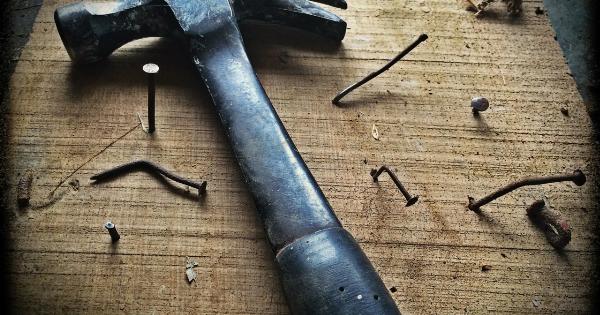Having healthy, strong nails not only adds to your appearance but also reflects your overall well-being. However, many people struggle with nails that easily split or break, which can be frustrating and unsightly.
If you find yourself dealing with brittle nails, it’s essential to understand the potential culprits behind this issue. Identifying the causes is the first step towards finding effective solutions. In this illustrated guide, we will explore the common factors that contribute to splitting and breaking nails, and offer tips on how to maintain strong and resilient nails.
1. Nutritional Deficiencies
One of the main reasons for weak and brittle nails is a lack of essential nutrients in your diet. When your body doesn’t receive proper nourishment, it prioritizes vital functions over the health of your nails.
Important nutrients for nail strength include vitamins A, C, D, and E, as well as biotin, iron, and zinc. Including foods rich in these nutrients, such as leafy green vegetables, eggs, nuts, and seafood, can help improve nail health.
2. Excessive Water Exposure
Constant exposure to water can weaken your nails and make them prone to splitting and breaking. When your nails absorb water, they temporarily become softer and more vulnerable.
Therefore, it is advisable to wear gloves while performing household chores, especially in activities involving prolonged exposure to water, such as washing dishes or cleaning. Additionally, always remember to dry your nails thoroughly after bathing or swimming to minimize water damage.
3. Harsh Chemicals
Regular contact with harsh chemicals, such as those found in household cleaning products or nail polish removers containing acetone, can strip away the natural oils and proteins that keep your nails strong and protected.
To prevent damage, always wear gloves when working with cleaning agents and opt for acetone-free nail polish removers. Additionally, limiting the use of nail polish or using a protective base coat can also help shield your nails from chemical damage.
4. Improper Nail Care
Improper nail care practices can lead to weakened nails. Some common mistakes that should be avoided include using your nails as tools for opening or prying objects, cutting your cuticles excessively, and improper filing techniques.
It is crucial to use proper tools for tasks, keep your cuticles moisturized, and file your nails in one direction to prevent splitting.
5. Overexposure to Moisture and Dryness
Exposing your nails to excessive moisture and subsequent dryness can create an environment that weakens your nails.
This can happen when you frequently wash your hands without moisturizing afterward or frequently expose your nails to extreme changes in temperature or humidity. Applying a moisturizer regularly and protecting your nails from extreme weather conditions can help maintain their strength.
6. Medical Conditions and Medications
Underlying medical conditions, such as thyroid disorders, anemia, or fungal infections, can also contribute to nail problems.
Additionally, certain medications, including chemotherapy drugs or those used to treat acne, may cause nail weakness or brittleness as a side effect. If you suspect a medical condition or medication is affecting your nails, it is essential to consult a healthcare professional.
7. Hormonal Changes
Hormonal changes, particularly during pregnancy or menopause, can affect the strength and quality of your nails. Fluctuations in hormone levels can lead to nail weakness, brittleness, or slow growth.
Maintaining a healthy lifestyle, including a balanced diet and regular exercise, may help mitigate the effects of hormonal changes on your nails.
8. Nail Biting
Nail biting is a common habit that not only damages the appearance of your nails but also weakens them. The constant biting and chewing can lead to thinning and peeling nails.
Breaking the habit can be challenging, but applying a bitter-tasting nail polish, seeking alternative stress-relief methods, or using professional therapy can help you kick this habit and improve the health of your nails.
9. Nail Trauma
Nail trauma, such as accidentally hitting your nail or forcefully removing artificial nails, can cause significant damage and lead to weak, splitting, or even detached nails.
Being cautious and gentle when handling your nails, avoiding forceful removal of nail enhancements, and protecting your nails from injuries can help prevent trauma-related nail problems.
10. Lack of Moisture and Hydration
Just like the rest of your body, your nails require proper moisture and hydration to stay healthy. A lack of moisture can leave your nails dry, brittle, and prone to splitting.
Applying a moisturizing lotion or cuticle oil regularly can help replenish moisture and promote nail flexibility. Additionally, staying adequately hydrated by drinking enough water throughout the day is beneficial for your overall nail health.































